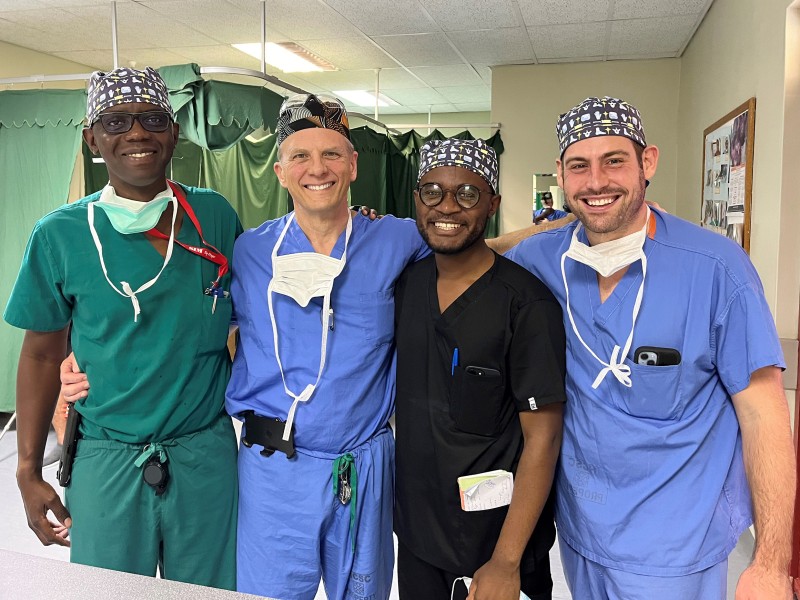St. Luke’s Expanding Behavioral Health Facility in Quakertown
St. Luke’s University Health Network is increasing the number of beds for inpatient psychiatric services at its Quakertown campus, continuing an expansion of mental health services to meet increasing demand brought about by a variety of factors.


St. Luke’s University Health Network is increasing the number of beds for inpatient psychiatric services at its Quakertown campus, continuing an expansion of mental health services to meet increasing demand brought about by a variety of factors.
The new adult Behavioral Health Unit will add 13 beds for a total of 32 beds.
Once the new Quakertown unit opens in early 2023, SLUHN’s total inpatient psychiatric bed capacity will be 202.
St. Luke’s inpatient behavioral health services spans four regions: Lehighton, Sacred Heart in Allentown, Easton and the Quakertown campus. All of the units have either been newly built or renovated over the last four years to “create a more aesthetically soothing and environmentally healing environment,” said Vice President of Patient Care Services Christina Zelko Bennick, DNP, RN.
The health effects of healing surroundings are evidenced through the latest research. That research has fueled the development of facilities that feel more welcoming because they incorporate elements of nature in both their color and design. This fairly new approach to behavioral health care produces environments that are more calming and supportive, while offering a variety of group spaces for gathering or meditation time.
“And this feels particularly timely, given the surge in mental health issues created by the pandemic,” said Zelko Bennick, who described the impact as “absolutely profound.”
As the region’s largest provider of comprehensive and integrated behavioral health and addiction services, the expansion of services is also a direct response to a growing need nationwide. She attributed that to a number of factors, including prolonged social isolation, increased substance use, economic uncertainties and social unrest.
Collectively, Zelko Bennick said, these factors have “fueled the mental health crisis in the United States. With the dismantlement of the state hospital systems and limited funding and resources for mental health services over the last decades, the infrastructure of support was already limited. The pandemic created an unprecedented surge of people of all ages needing help, and unfortunately, our systems became overwhelmed.”
St. Luke’s isn’t alone in encountering this need, said Dr. James A. James III, the interim chair of Psychiatry and Behavioral Health and a Core Clinical Faculty Member of the Psychiatric Residency Program. For years, he said, “we have seen a growing need for mental health services.”
“With COVID-19 and the reverberations felt in our communities during the pandemic, many services were curtailed or paused,” James said. “Resources and staffing became challenging and innovative ways to connect with those in our community were pursued. But those innovations have not been adequate compared to the reductions in services, strain on the mental health systems and services across the state of our communities.”
Network plans include increased inpatient bed capacity, including the opening of the Easton Adolescent Behavioral Health Unit in January, partial program expansion for both adults and adolescents, large-scale primary care practice integration, psychiatry resident program implementation, school-based therapy services, introduction of a virtual care platform, the St. Luke’s Penn Foundation merger, the 4.0 Detox Unit opening at the Sacred Heart campus and the debut of a crisis walk-in center that will open in Lehighton in the near future.
The Network also established the St. Luke’s S.H.A.R.E program (integrated medical practice) that provides medication-assisted treatment and counseling services, and continues to work with local partners to link patients to community-based programs
“We are diligent, innovative and determined to address this challenge, but it is a game of catch-up both here and across the nation,” added James.
An uncertain world, Zelko Bennick added, only fuels the need for continued expansion and refinement of mental health services.
“With an unstable environment, people feel unsafe, and they can start to lose hope,” she said. “We have to address that, because without hope and purpose one can become lost, and recovery seems unattainable.”
Note: This local health news is brought to you in partnership with St. Luke’s University Health Network.




